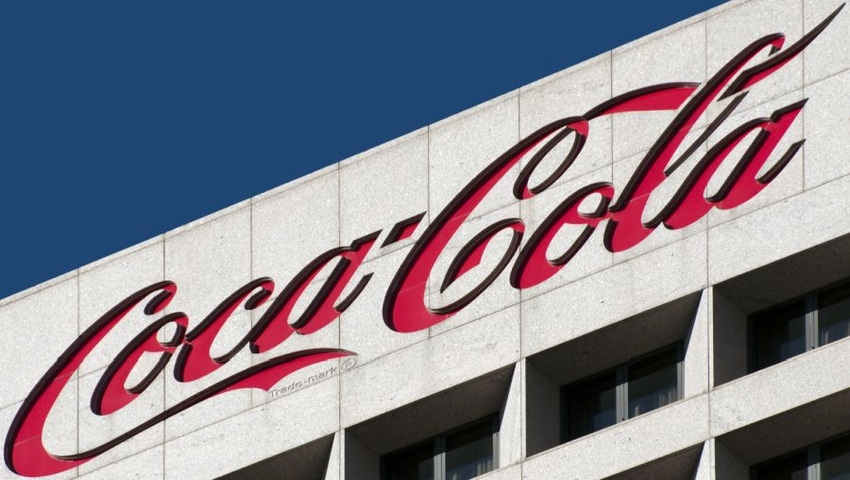The lawsuit was brought by two pastors and a nonprofit organization against Coca-Cola and the American Beverage Association.
July 18, 2017

Editorial credit for Coca-Cola image: Shutterstock.com
The Coca-Cola Company and a trade association have deceived consumers regarding the connection between sugar-sweetened beverages and obesity, according to a lawsuit filed July 13 in the nation’s capital.
Coca-Cola and the American Beverage Association (ABA) are cognizant “of the science linking sugar-sweetened beverages to obesity and obesity-related conditions, including type 2 diabetes and cardiovascular disease, and of growing public concern over this link," the lawsuit noted. While contending the defendants were behind “an aggressive campaign to protect profits earned from the sale of sugar-sweetened beverages," the complaint accused the ABA and Coca-Cola of saturating “the market with countervailing representations that obscure this link between the beverages and disease."
For instance, the lawsuit quoted a Coca-Cola executive, Katie Bayne, who denied in a 2012 interview with USA Today that there is scientific evidence that connects obesity to sugary drinks.
Coca-Cola also purportedly paid health professionals to promote sugar-sweetened beverages on the internet. “In February of 2015, for example, Coca-Cola paid dietitians to write numerous online pieces for American Heart Month that included the suggestion that a soda could be a healthy snack, ‘like . . . packs of almonds,’" the lawsuit alleged.
The ABA characterized the accusations in the complaint as “unfounded."
“America’s beverage companies know we have an important role to play in addressing our nation’s health challenges," the trade association said in an emailed statement. “That’s why we’re engaging with health groups and community organizations to drive a reduction in the sugar and calories Americans get from beverages.
“Unfounded accusations like these won’t do anything to address health concerns, but the actions we’re taking, particularly in areas where obesity rates are among the highest, can make a difference."
Coca-Cola described the allegations in the lawsuit as "legally and factually meritless," and the company said it "will vigorously defend against them."
In an emailed statement, Coca-Cola said it has "a role to play in helping people reduce their sugar consumption" and supports the World Health Organization's recommendation that individuals limit their consumption of added sugar to no more than 10 percent of their total daily calorie intake.
"We have begun a journey toward that goal," Coca-Cola said. "So we are taking action to offer people more drinks in smaller, more convenient sizes, reducing sugar in many of our existing beverages, and making more low and no-sugar beverage choices available and easier to find at local stores."
Added Coca-Cola, the world’s largest beverage company with US$41.9 billion in 2016 sales: "We’ll also continue making calorie and nutrition information clear and accessible so people can make more informed choices for themselves and their families without the guesswork.”
The lawsuit against Coca-Cola and the ABA was filed in the Superior Court of the District of Columbia by three plaintiffs: Reverend William H. Lamar IV, pastor of the Metropolitan African Methodist Episcopal Church in Washington; Reverend Delman Coates, senior pastor of Mt. Ennon Baptist Church in Clinton, Maryland; and the Praxis Project, a nonprofit organization focused on building healthier communities.
The plaintiffs seek a declaration that the defendants’ conduct is unlawful, unfair and/or deceptive in violation of the District of Columbia Consumer Protection Procedures Act. The lawsuit also seeks an injunction to prohibit Coca-Cola and the ABA from continuing the allegedly deceptive promotion, marketing and sale of sugar-sweetened beverages.
The plaintiffs also want the court to prohibit Coca-Cola from marketing its sugar-sweetened beverages to children under the age of 12, order the ABA and Coca-Cola to “fund a corrective public education campaign," and award plaintiffs’ attorneys’ fees and costs.
Maia Kats, litigation director of the nonprofit Center for Science in the Public Interest, who is one of the lawyers representing the plaintiffs, compared the defendants’ behavior to “a systemic campaign of deception" by the tobacco industry over decades “to cast doubt on the science connecting smoking to lung cancer.
“Today Coca-Cola and the ABA are conducting their own campaign of deception to hide the science connecting sugar-sweetened beverages to obesity, and obesity-related diseases like diabetes and heart disease," Kats said in a press release. “We seek to protect consumers and to stop the deception."
You May Also Like




.png?width=800&auto=webp&quality=80&disable=upscale)